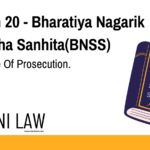CrPC Section 436A: Maximum Detention Period for Under Trial Prisoners
1. Code
The Code of Criminal Procedure, 1973 (CrPC) Section 436A deals with the maximum period of detention for undertrial prisoners.
2. Explanation
This section mandates that an undertrial prisoner cannot be detained beyond the period specified in the table below, unless their trial has concluded. The maximum detention period depends on the nature of the offense and the stage of trial:
| Offense | Maximum Detention Period |
|---|---|
| Offense punishable with death or life imprisonment | 2 years |
| Offense punishable with imprisonment for a term exceeding 10 years | 1 year |
| Offense punishable with imprisonment for a term not exceeding 10 years | 6 months |
| Offense punishable with imprisonment for a term not exceeding 5 years | 3 months |
3. Illustration
Suppose a person is arrested for an offense punishable with imprisonment for a term not exceeding 10 years. If the trial is not completed within 6 months, then the person must be released on bail.
4. Common Questions and Answers
Q1: Who is an undertrial prisoner?
An undertrial prisoner is a person who is accused of an offense but has not yet been convicted by a court.
Q2: Does the maximum detention period apply to all undertrial prisoners?
No, this section does not apply to prisoners detained under the following circumstances:
- Detention under preventive detention laws
- Detention for failing to furnish bail
- Detention under special laws like the National Security Act
Q3: What happens if the trial is not completed within the maximum detention period?
The undertrial prisoner must be released on bail, unless there are specific reasons to justify further detention.
Q4: Can the court extend the maximum detention period?
Yes, the court can extend the maximum detention period for specific reasons, such as the complexity of the case, the availability of witnesses, and the need for further investigation.







